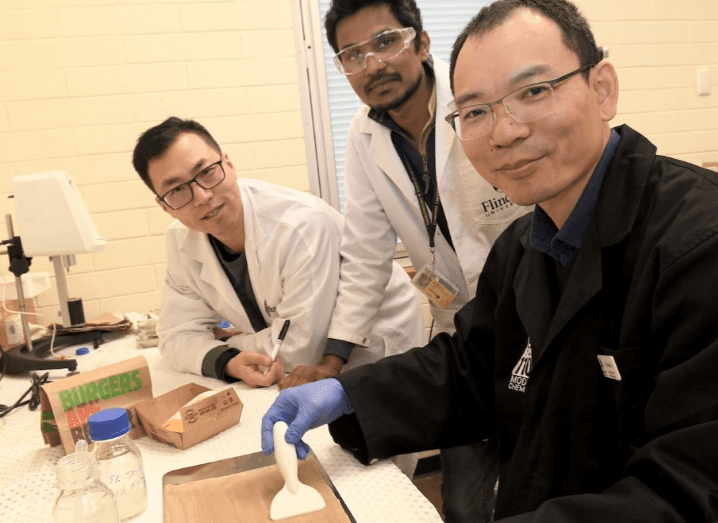Flinders University materials researchers and German biomaterials developer one -fıve are using seaweed extracts to develop the next generation of biopolymer coating materials to address the fast food industry's packaging waste dilemma.
New non-polluting biomaterials are designed to replace traditional fossil-based plastic coatings used in grease-resistant fast food packaging. Grease resistant papers are often coated with plastics and other environmentally harmful chemicals such as polyfluoroalkyl substances (PFAS), but the new prototype coating meets the functional requirements of traditional grease-resistant packaging materials without polluting the environment. This result represents a milestone achievement in the creation of the next generation of sustainable and eco-responsible biopolymers.

We were able to reduce harmful plastic pollution with this product , and seaweed farming helps to naturally restore the marine environment, reduce greenhouse gases and mitigate coastal erosion," said Claire Gusko, co-founder of Fıve. It is important for us to use sustainable inputs upstream to ensure that our products are environmentally safe from the factory to the point of use.
Dr. Jia said, "Seaweed extracts have a similar structure to the natural fibers used to make paper, and our novel specialized treatment improves the oil and grease resistance of seaweed through simple modifications without affecting the biodegradability and recyclability of the coated paper."
The biomass used in the new coating formulation is made from a natural polymer derived from seaweed native to the South Australian coastline, providing a key reason for Flinders University researchers to study it for wider scientific applications.
These extracts are transformed by proprietary processing methods to produce functional biopolymer sheets that can be cut or coated on a variety of surfaces depending on the application.
The program is designed to have a transformative impact on the global packaging and plastics industry by significantly reducing reliance on highly polluting traditional plastics.

